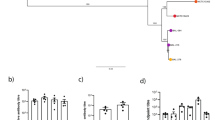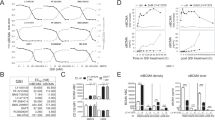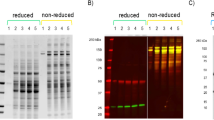Abstract
ABSTRACT: We have developed a human MAb that opsonizes group B streptococci, the major cause of gram-positive bacterial sepsis in newborns. It is an IgM class human MAb that possesses unique protective activity against experimental infections caused by the predominant group B capsule serotypes III and I. Preliminary preclinical studies with the IgM human MAb were designed to provide initial information useful for predicting its safety and pharmacokinetic properties. Two neonatal Macaca fascicularis monkeys were infused with the human MAb at either 17.8 or 230 mg/kg. Safety was evaluated by visually monitoring postinfusion clinical status and by standard clinical chemistry analyses and quantitative hematology on blood samples collected for 30 d. The serum antibody levels were determined by ELISA and antibody functional activity in serum samples by opsonophagocytic assays. The IgM human MAb appeared safe (normal laboratory values and clinical status) with a half-life of 2.5 d, a period compatible with the 5-d half-life reported for human IgM in adult serum. In addition, the human MAb retained functional opsonic activity for at least 30 d. Human MAb may offer a safe alternative for treating severe bacterial infections.
Similar content being viewed by others
Log in or create a free account to read this content
Gain free access to this article, as well as selected content from this journal and more on nature.com
or
Author information
Authors and Affiliations
Rights and permissions
About this article
Cite this article
Raff, H., Shuford, W., Wolff, E. et al. Pharmacokinetic and Pharmacodynamic Analysis of a Human Immunoglobulin M Monoclonal Antibody in Neonatal Macaca fascicularis. Pediatr Res 29, 310–314 (1991). https://doi.org/10.1203/00006450-199103000-00018
Received:
Accepted:
Issue date:
DOI: https://doi.org/10.1203/00006450-199103000-00018
This article is cited by
-
Bacterial carbohydrates in neonatal sepsis: targets for immunotherapy
Springer Seminars in Immunopathology (1993)



